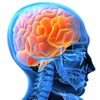A broken heart leads to a broken brain
Heart disease may kill brain cells, say researchers at The University of Western Australia. Their findings suggest that heart disease may affect a part of people’s brains governing mentally demanding tasks.
In a paper published in the European Heart Journal, lead author Winthrop Professor Osvaldo Almeida said people with heart failure and ischaemic heart disease (reduced blood supply to the heart) may suffer impaired memory, reasoning and planning.
Professor Almeida, who is Chair of Geriatric Psychiatry at UWA and Director of Research at the Western Australian Centre for Health and Ageing, said his team’s findings showed that heart failure could also affect emotions and mental activity.
“It could be possible that patients with heart failure may have trouble following complex management strategies, and therefore treatment messages should be simple and clear,” Professor Almeida said. “Health professionals and patients need to be aware that problems caused by heart disease are not limited to the heart.
“Medical resonance imaging (MRI) has allowed us to examine the impact of both heart failure and ischaemic heart disease on cerebral grey matter. It showed that people with heart failure display more widespread and extensive brain changes than adults with ischaemic heart disease.”
Professor Almeida and his colleagues carried out cognitive tests on 35 patients with heart failure, 56 patients with ischaemic heart disease and 64 healthy people without either of these diseases. MRI was used to assess differences in the volume of grey matter in different parts of the brain.
“The study was not sufficiently large to show with certainty that the cognitive performance of participants with heart failure was worse than that of participants with ischaemic heart disease, although both showed a deficit when compared with controls,” he said. “Further research is required.
“I hope new studies will clarify if changes we noticed are progressive in nature and if they can be managed with appropriate rehabilitation.”
(Source: The University of Western Australia: European Heart Journal)
More information
 | For more information on keeping your heart healthy, including information on how the heart works, the effect of cholesterol and eating for heart health, as well as some useful videos and tools, see Heart Health. |
 | For more information on brain health, including the anatomy of the brain, the effects of nutrition and exercise on the brain, and the effect of mental activity on health, see Brain Health. |
Dates
Tags
Created by:

 Login
Login














